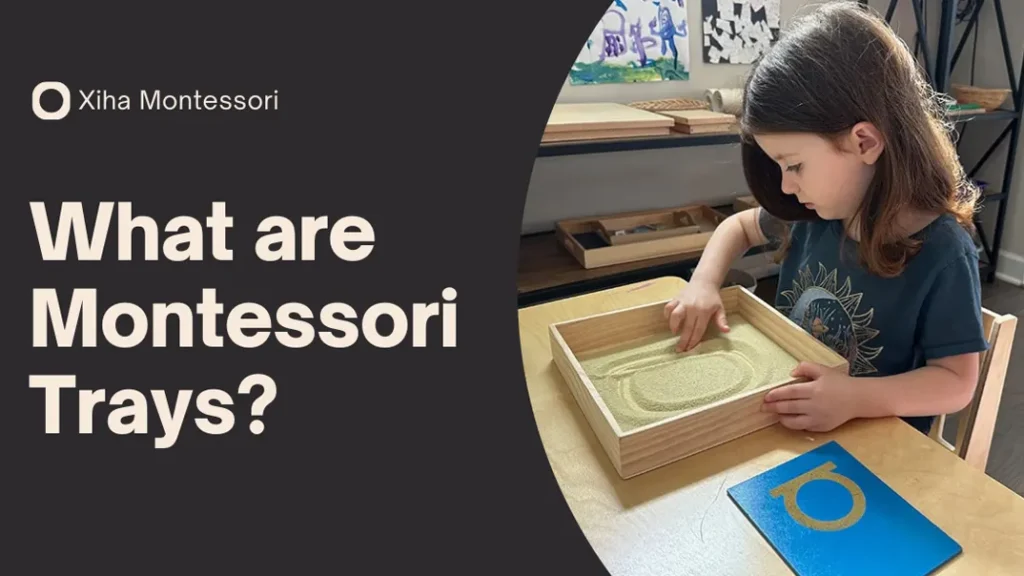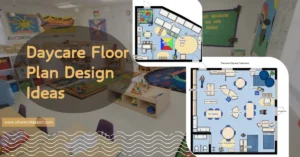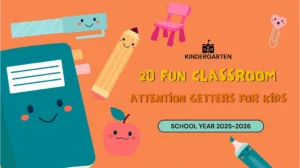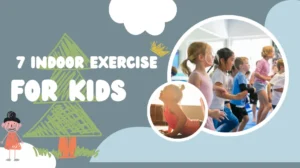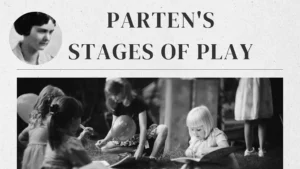If you are a parent or educator looking for effective ways to engage and educate young children, you may have encountered the concept of Montessori trays. Montessori trays have gained popularity among parents and educators for their ability to promote independent learning and fine motor skill development in children.
One of the key factors in any Montessori program is the philosophy of child-led learning and play. Montessori materials are all designed so that the child can successfully interact, play, and learn with the materials independently – free from distraction. Trays are commonly used throughout a Montessori school or home to facilitate this style of learning and discovery.
Montessori trays organize activities and foster a sense of independence and order. These trays are easy for a child to carry and include all the materials needed for an activity. Montessori trays and baskets offer variety without overwhelming and clutter, allowing for focused, uninterrupted play.
If you utilize the Montessori method exclusively with your child, you are familiar with the importance of trays. If you are new to Montessori or looking to incorporate some Montessori theory in your home, Montessori trays and baskets are a great way to help your child learn and grow independently.
What are Montessori Trays?
Montessori trays are designed to hold and present learning materials to children in a Montessori classroom. Each tray typically contains a single activity or set of materials, carefully organized to facilitate the child’s engagement and learning.
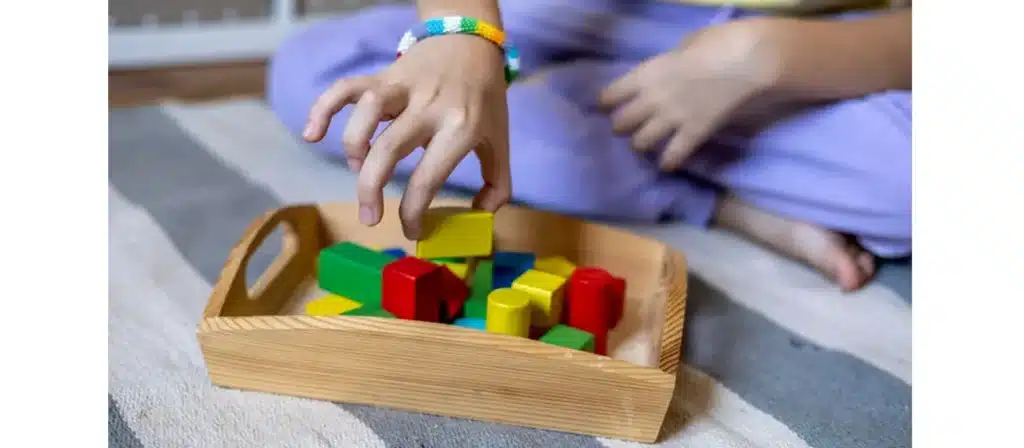
Why Does Montessori Use Trays?
The materials used in the Montessori Method are as important as the theory itself. Every component of a Montessori material, task, or set-up is designed to help the child learn and develop critical ways of thinking and experiencing their world.
Trays are used in many of the different Montessori areas of learning and are a great way to incorporate this learning style in your home. Montessori trays are used for some important reasons:
- Montessori trays help teach order. When an activity is organized and presented in full to a child, they know where things are when they start and how to put each item away neatly. This also encourages your child to work on one activity entirely and put it away before beginning another.
- Carrying Montessori trays helps children develop focus, coordination, and balance. While carrying a tray might not seem like much for an adult, there are many critical motor skills this action helps develop in a small child.
- Promoting independence: Organizing activities and playing with trays and baskets fosters independent thinking and choice in a child. A child is encouraged to choose the tray that interests him the most at the time. This leads to more engagement and focus as the child decides what to work on.
- Developing interests and skills: Montessori trays and baskets allow for curating toys and activities based on your child’s interest and skill level. Instead of bins and buckets filled with endless clutter, having fewer, more complete tasks, projects, and activities allows for more purposeful and focused play. As your child’s interests and skill levels change, you can swap out trays to introduce new things.
- Montessori trays teach children to classify and group things alike: Sensory experience and learning are tenements of the Montessori method. The organized trays help develop an understanding of how objects relate to each other and are grouped in different ways.
- Facilitating cognitive development: Montessori trays often include activities that challenge children’s thinking and problem-solving abilities. Children enhance their mental skills, such as memory, logic, and spatial awareness, by engaging with these materials.
- Building social skills: While Montessori trays are typically used for individual work, they can also facilitate cooperative learning. Children may work alongside peers, sharing materials and discussing their activities.
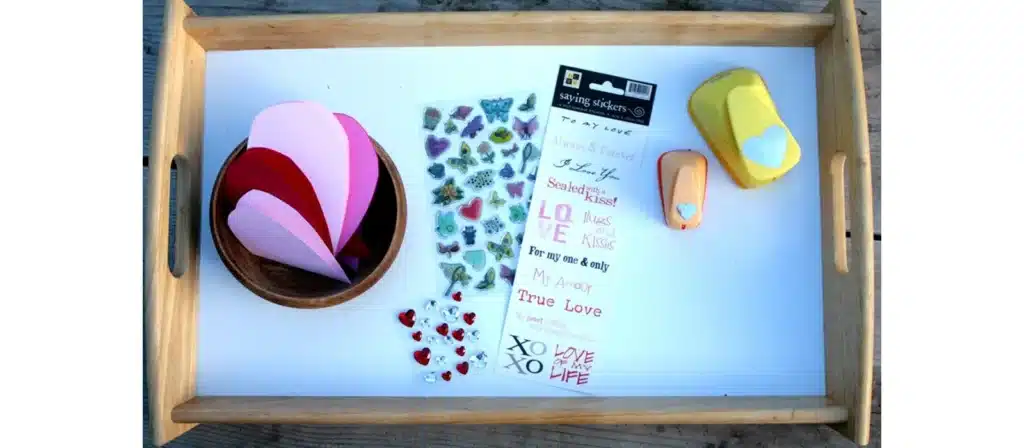
You Can Be Creative With Your Montessori Trays
There are an unlimited number of ways to use Montessori trays and baskets in your own home. Trays can be utilized to organize so many different games, toys, and activities. Using trays allows you to offer an even larger variety of tasks, including ones that would otherwise take time to set up and put together. This is particularly true of art trays.
When creating Montessori trays or basket, there are a few things to consider.
- Ensure your tray has a lip or edge or your basket is shallow. It is important that the items are safely contained and can be carried, and every item can be displayed.
- Use natural material trays and baskets when possible. The Montessori method considers it vital for children to play with natural materials that are natural to the world and their environment. Wood, wicker, metal, and other natural fibers are perfect.
- Make sure your tray or basket size is appropriate for your child. The child must be able to carry the tray or basket themselves.
- When placing your trays and baskets out for the child, ensure they are at an accessible height and displayed. They should be easily accessible to the child so that he can access them all.
You can choose any game, lesson, task, or theme for your Montessori trays. The goal is to ensure a clear objective for each tray and that they are complete, meaning that everything the child needs to do the activity is on the tray.
Some examples of activities on Montessori trays include:
- Sorting Activities: Montessori trays are a great way to introduce different sorting games and activities to children. For example, a sorting tray might include sorting buttons by color or size. You can set up your tray to include cupcake pans or other small bowls and dishes and incorporate small tongs or tweezers to further develop fine motor skills.
- Cutting and Pasting Activities: Pasting and cutting trays are popular Montessori trays activities. You can include small jars of glue brushes and various materials for pasting onto clean paper on these trays. You may want to assemble a tray with stencils, scissors, pencils, and paper to create a cutting station for your little one to explore.
- Sand Trays: Kinetic sand and other sensory sands are a great way to let children learn through play. These trays can include different objects to dig in the sand with or other shapes they can mold the sand into.
- Practical Life Trays: There are endless ideas for practical life trays. These are intended to include activities critical to independence and daily living. These may include a small cheese grater, a bar of soap, or a beading activity with beads and different types of string and yarn. They can also include spray cleaning, opening and closing containers, and more.
Types of Montessori Trays and Their Applications
Montessori trays are versatile and can be adapted to various educational activities. Here are some common types and their specific applications:
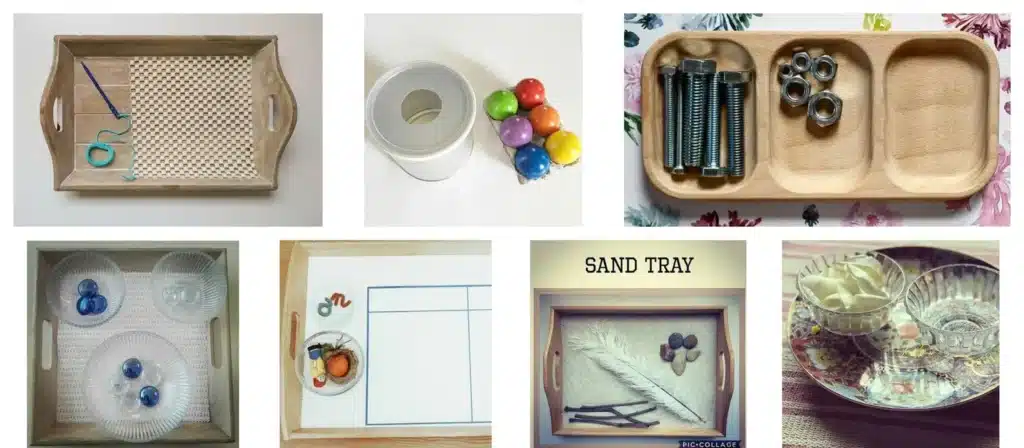
- Practical Life Montessori Trays: These trays include activities that help children develop everyday life skills. Examples include pouring, spooning, and cutting exercises. Practical life trays teach children to perform daily tasks independently, promoting self-sufficiency and confidence.
- Sensorial Montessori Trays: Sensorial trays contain materials that help children refine their senses. Activities might include sorting objects by color, shape, or size or using tactile materials to develop the sense of touch.
- Language Montessori Trays: Language trays support the development of reading and writing skills. They may include alphabet cards, word-matching games, or writing practice activities. Language trays help children build vocabulary, phonemic awareness, and literacy skills.
- Math Montessori Trays: Math trays contain materials that introduce mathematical concepts such as counting, addition, subtraction, and geometry. Activities might include bead counting, number cards, or shape puzzles.
- Cultural Montessori Trays: Cultural trays introduce children to geography, science, history, and the arts. They might include maps, globes, scientific experiments, or art materials. Cultural trays broaden children’s world understanding and stimulate curiosity about diverse subjects.
- Art Montessori Trays: Art trays provide materials for creative expression, such as crayons, paints, and craft supplies. These trays encourage children to explore their artistic abilities and develop fine motor skills through creative activities.
- Music Montessori Trays: Music trays might include instruments, rhythm sticks, or music notation cards. These trays help children explore musical concepts, develop auditory discrimination, and express themselves through music.
- Science Montessori Trays: Science trays introduce children to basic scientific concepts and experiments. They might include magnifying glasses, plant-growing kits, or simple machines.
Setting up and Maintaining a Montessori Tray
Proper setup and maintenance of Montessori trays are crucial for maximizing their educational benefits.
Organizing the Environment
Create a dedicated space for Montessori trays that are easily accessible to children. Low shelves should be used to display the trays, allowing children to select activities independently.
Labeling and Instruction
Label each tray with a clear description of the activity and instructions for use. This helps children understand the purpose of the tray and how to engage with it properly.
Rotating Activities
Regularly rotate the activities on the trays to keep children engaged and challenged. Introducing new materials periodically prevents boredom and stimulates ongoing learning.
Teaching Proper Use
Demonstrate how to use each tray correctly. Show children how to handle the materials, complete the activity, and return the tray to its place. Reinforce these habits consistently.
Encouraging Responsibility
Teach children to take responsibility for the trays by caring for the materials and keeping the environment tidy. This practice fosters respect for their learning space and the tools they use.
Inspecting for Wear and Tear
Regularly inspect the trays and materials for signs of wear and tear. Replace or repair damaged items to ensure safety and maintain a high-quality learning environment.
Providing Variety
Include various activities across domains, such as practical life, sensorial, and academic tasks. This variety supports well-rounded development and keeps children interested in learning.
Encouraging Exploration
Allow children to explore the trays at their own pace. Encourage them to experiment with different activities and discover new interests. This approach promotes a love of learning and self-directed exploration.
Where to Buy Montessori Trays?
Montessori trays are essential tools for organizing activities and materials in a Montessori classroom or home setup. Here are several places where you can buy Montessori trays:
- Specialty Educational Stores – Stores specializing in educational supplies often carry Montessori materials, including trays. These stores may be local or online.
- Online Retailers – Websites like Amazon, Etsy, and eBay offer a wide range of Montessori trays, often from different sellers, which allows for comparison of prices and styles.
- Montessori Supply Websites – Dedicated Montessori Suppliers and Specialized Montessori Education Boutiques tend to offer higher quality and more authentic materials.
- Local Craft Stores – Some Montessori trays can be simple wooden or plastic trays, which you might find at a craft store. These can be customized or used as is.
- Direct from Manufacturers – Buying directly from manufacturers might save costs, especially if you buy in bulk for a school or multiple home settings.
For example, Xiha Montessori is a specialist nursery manufacturer, and we not only provide furniture and teaching aids but offer a one-stop service from design to furniture delivery. - Educational Conferences and Expos – Attending educational conferences and expos can provide opportunities to purchase Montessori materials, including trays, often at discounted prices.
You Can Start Using Montessori Trays Anytime
Montessori trays are a great way to encourage independent play, designed to nurture a child’s sensory development and independence. Montessori trays can be used for so many different activities and in so many ways.
You can use Montessori trays in your child’s room or playroom or even in each room with trays designed to fit that room’s purpose. For example, you may want to put trays focusing on practical life or cooking skills in the kitchen. An example is maybe a tray with toy fruit that can be cut.
Whatever you decide, Montessori trays are always a great addition to your child’s environment and are customizable. Be creative and have fun with them.

